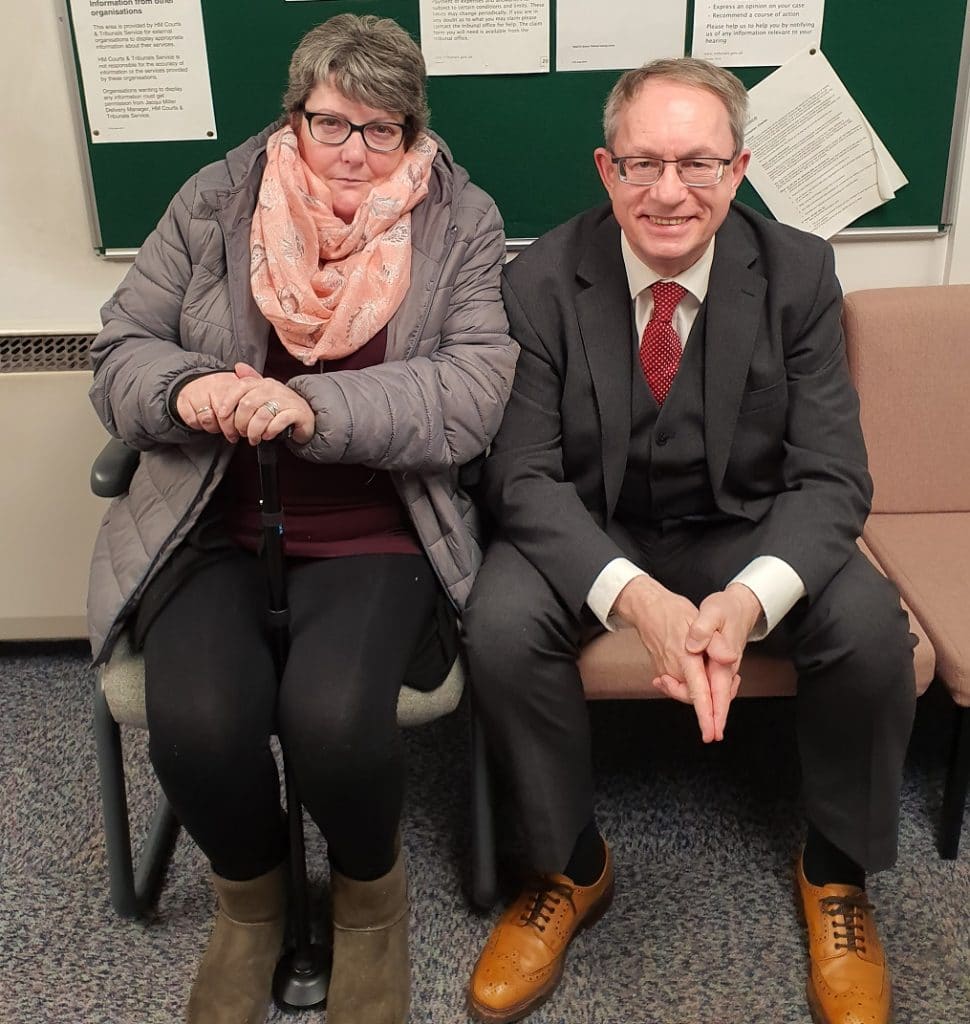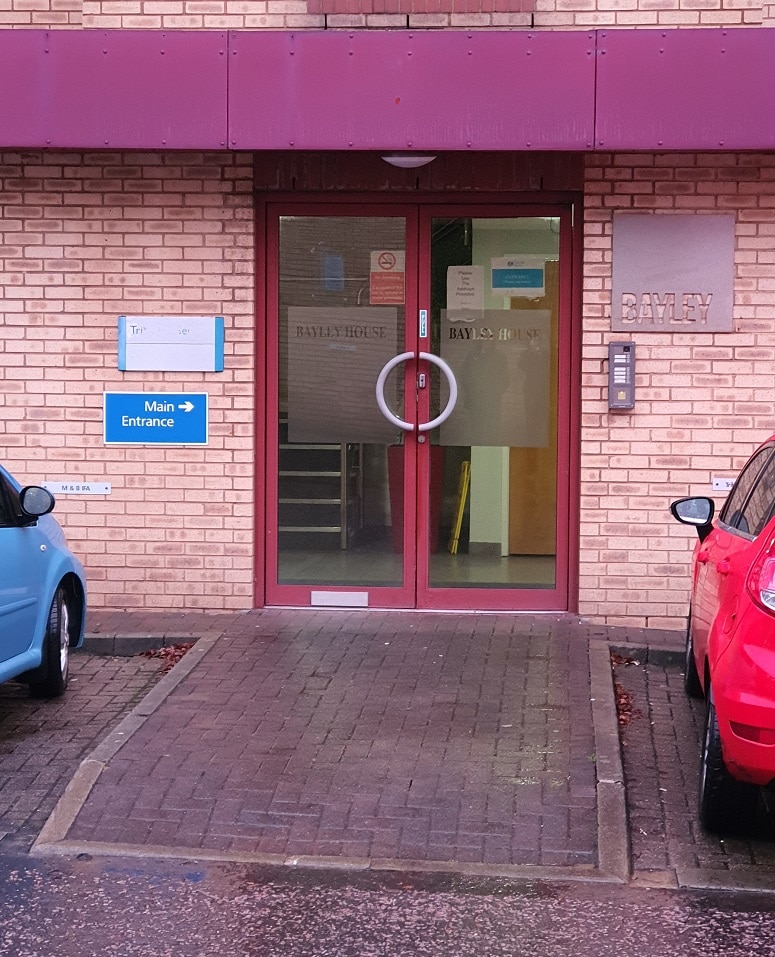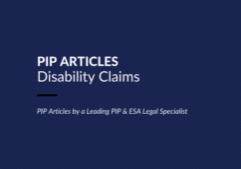The impact of Fibromyalgia on a PIP claim
The impact of Fibromyalgia on a PIP Claim is not the easiest thing to get accepted by the DWP. Not that Tracey’s problems ended there; she is also affected by rheumatoid arthritis, hearing loss, depression, a heart problem and anxiety, all of which featured in her appeal. After going through the PIP test together, our advice was that she should have had awards of the enhanced rate of both components, so that is what we set out to prove. Tracey was one of the legion of claimants who lost a Motability car on the move from DLA to PIP. Her old award of high rate DLA mobility and lowest rate care component became standard rate of both components for PIP
The usual suspects
Tracey had scored 8 points for daily living, just enough to get standard rate. Those 8 points were the predictable Preparing food, Washing, Toilet needs and Dressing. Not awarding 2 points for Communicating verbally seemed very odd as she was wearing a prescribed hearing aid at the assessment. The fact that the nurse did not award those points or explain why she was not doing so, helped in undermining her opinions on other questions when it came to writing the tribunal submission.
Evidence
We had a pretty basic letter from her GP, but also got hold of many pages of medical notes, which had to be read, noting where they supported what we were saying about Tracey’s entitlement. There are almost always unhelpful entries in such notes, so that a decision has to be made on whether to submit them or not, weighing the positives and negatives. We have seen appeals where clients have medical evidence, either thinking that it must help them, or not seeing how it would read if you were looking for a reason to turn the claim or appeal down. It has completely undermined what was otherwise a good appeal. The fact that the client disputed the negative entries did not help; they were there, and you will come across tribunals that are looking for reasons to say no, just as there are ones that look to see if any additional points should have been awarded. You never know what you are going to find when you walk into a tribunal room.

Witness statements were taken from Tracey’s partner and sister, which were relevant and read well. From our experience, such statements are an under used source of evidence.
Evidence
We had a pretty basic letter from her GP, but also got hold of many pages of medical notes, which had to be read, noting where they supported what we were saying about Tracey’s entitlement. There are almost always unhelpful entries in such notes, so that a decision has to be made on whether to submit them or not, weighing the positives and negatives. We have seen appeals where clients have medical evidence, either thinking that it must help them, or not seeing how it would read if you were looking for a reason to turn the claim or appeal down. It has completely undermined what was otherwise a good appeal. The fact that the client disputed the negative entries did not help; they were there, and you will come across tribunals that are looking for reasons to say no, just as there are ones that look to see if any additional points should have been awarded. You never know what you are going to find when you walk into a tribunal room.
Witness statements were taken from Tracey’s partner and sister, which were relevant and read well. From our experience, such statements are an under used source of evidence.
17 days left
It did not help that this is how long we had from when Tracey first made contact, to the hearing date in Bolton, which had already been set. We are well used to working quickly and to a deadline, and wherever possible, we get the submission and evidence to the tribunal office in good time for them to get it out to the tribunal panel members. Great legal arguments, case law and evidence can be wasted if the tribunal have not had time to consider it properly.
£300
Not our fee for the appeal, but this is what the client was able to put down towards that fee. Clients are often in difficult financial circumstances and may be dealing with the loss or reduction of their benefits. It can be tough to raise any money, but we do like clients to have a stake in their appeal. The rest of our fee only becomes payable if the appeal is allowed, so we have a stake in the appeal being allowed too as we would make a huge loss.

An anxious time
Tracey’s appeal for mobility was based in part on the Department having over estimated the distance that she could walk, but also on how limited she is in going out on her own. There are places she can go without another person, but there is case law on this, which we explained in our written submission, providing a copy of the Upper Tribunal decision to make it easer for all three panel members to think about.
When we went into the hearing, the Judge explained that our appeal for 12 daily living points had been accepted on the strength of the evidence and submission we had put in. They accepted that additional points should have been awarded for the hearing aids, and for the aid provided by occupational therapy to help with cutting up food. The hearing then focussed on the two parts of mobility, with the client dealing with the questions really well. There was no Presenting Officer from the DWP on this occasion, but I do not believe that it would have affected the outcome.
You can be pretty sure that a hearing has gone well, but you cannot be completely certain until you hear a decision announced, or see it in black and white. We knew that it had been allowed in part, with the Judge’s announcement on the daily living side, but they also added 10 points for Planning & following journeys, giving us enhanced rate of both, with a five year award, just what we wanted.
The arrears should come in at £4,200.


 Fibromyalgia and PIP
Fibromyalgia and PIP